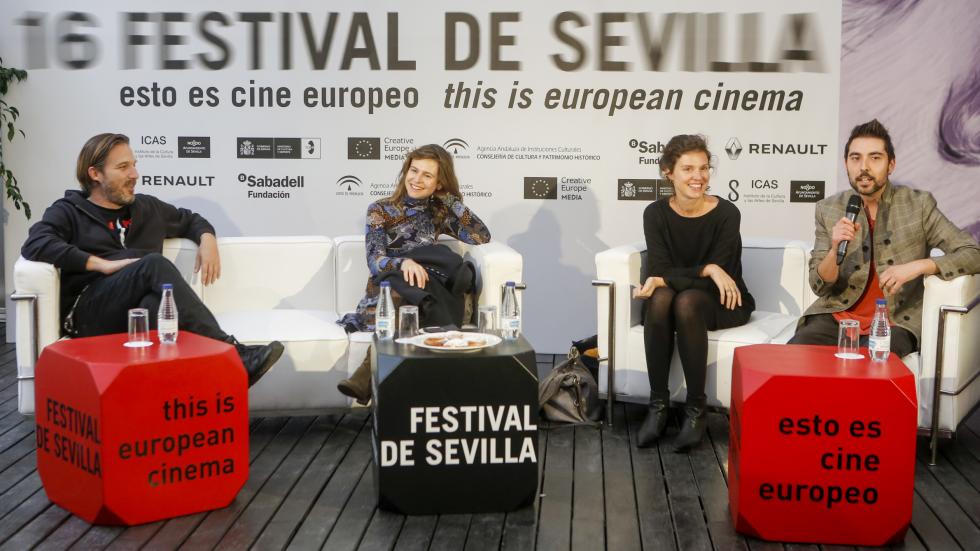The directors Alexe Poukine, Maura Delpero y Xawery Żuławski have taken part in the coffee with the audience in the 16th Seville Festival, where they have talked about the dignification of the human being and the film as a mean to confront the trauma.
Alexe Poukine, director of That Which Does Not Killhas discussed the experience of narrating a real rape, an act whereby the director got to give voice to women who has silenced her story. In the film, Poukine narrates Ada’s stories, a young girl who was raped by one of her acquaintances, an event that, according to the director, lead her to ask herself “the difference between a violation by a dangerous stranger or by people you know, who you have trust with”.
Focusing on the word as a horror testimony, Poukine has had to work with non-professional actors, and among them she looked for men who would recognise they have raped. “I wanted them to act well enough to seem credible, but not that much to make them really acting”. With this research of naturalness, Poukine has addressed a taboo issue in modern society, that currently transforms into the guilty the own victim condemned to silence.
From a different perspective about women experiences, the director Maura Delpero presents Maternal, a feature film that addresses maternity among young people, who are forced to go to look for help to a convent of nuns. The director has explained that this story is universal, archetypic and easy to find in her native Argentine. She has commented: “When I did the cast, I chose non-professional actors, in fact, when one of the womenread the script, she asked me how I knew that much details about her private life”.
In this way, the director has carried out a long investigation process between fiction and reality that has ended up in a story that explores the reality among female teenagers, “stablishing a clear difference between those who can afford to have an abortion and those who do not”.
The film by Delpero also entails a study of time and space, a here and now that underlines the spaces of seclusion, as the convent, compared with the opening spaces, represented by Nina. The interior debate of the lead, between a sacred and an unholy life, stays underlined with the space geometry, even the most claustrophobic ones.
The Polish Xawery Żuławski, on his part, has pointed out the origin of his story, which addresses the politics in his country, from the concern of the recent story of Poland, with an extreme right government.
Żuławski got the script for his film after the passing of his father, who had written it and left it to a friend who was a producer. “The producer asked me if I wanted to film it, and I said no, because my father told me that the unique key to reach freedom is to say no”.
During the encounter, the director has affirmed that with this work he expected to reflect the Polish intellectuals through a narrative deconstruction her father would be proud of. According to what he has explained, he has made his approximation to this story from a passionate perspective by someone who loves film and desires to shoot a film. “Therefore, the camera movements are more aggressive since they contain the desires by someone who wants to do something”.







